We are delighted to share that a final selection of five Ideas for our Impossible Project experimental open call has been made!
We received a total of 37 bold audio submissions which explored a rich variety of approaches, methods, and techniques for engaging with transformative climate science.
What is “Impossible Project ideas” again?
Impossible Projects invites climate researchers to think boldly and explore uncertainties. Just before the summer of 2025, the project launched an “unusual call” for sharing “unfundable gems”. With this call, the project team behind Impossible Projects, a collaboration between Foundation We Are and KIN, aims to gain insight into the barriers and bottlenecks in the current funding system for scientific and practical research in the field of climate (transition). The goal is to devise new forms of funding that will make it possible to implement seemingly “unfundable” gems in the future.
About the selection process
On September 9th, the selection committee, formed by Michiel van den Hout, Derk Loorbach, Lizanne Schepers, Frederike Schmitz, Thomas Kelderman deliberated on the submissions and selected five ideas on the basis of which the New Ways of Funding team will organise a co-design session to prototype innovative funding models for transformative climate research together with a variety of stakeholders.
The final selection of five ideas was guided by the type of systemic funding constraints that emerged in the pool of submissions, and by which challenges the committee saw potential to address within KIN and NWO.
With the final selection, the New ways of funding team aims to explore the following aspects in funding transformative climate research (in no particular order):
- research through artistic practices, cultural interventions and participation
- person based funding with open-ended effect
- open-ended, speculative, location-based research and its infrastructure
- critical, paradigm-shifting and participatory research processes
- participatory infrastructure and evolving technology
And the winners are…
- Choir of the Sea submitted by Remco de Kluizenaar explores how to use amateur choirs to connect with marine ecologies and human impact
- Transition Income submitted by Ad Vlems and Monique Vissers explores how to fund transition research pioneers instead of research projects
- The Port as a Pulse submitted by Lucy Gilliam and Tanner Tuttle explores the reimagination of the role of Rotterdam port from ‘linear throughput hub’ to ‘regenerative climate resilient economic node’
- Designing the Otherwise submitted by Irene Luque Martin explores spatial design to build new, just, bottom up, parameters and create legitimacy for other forms of knowledge
- Adaptive Intelligence for Everyone submitted by Mattijn van Hoek and Ton Botterhuis explores the opposite of citizen science by investigating how to make technical and policy expertise accessible to citizens via AI and how to change the role of scientists to validate plans
Read more about them below!
Choir of the Sea submitted by Remco de Kluizenaar
explores how to use amateur choirs to connect with marine ecologies and human impact
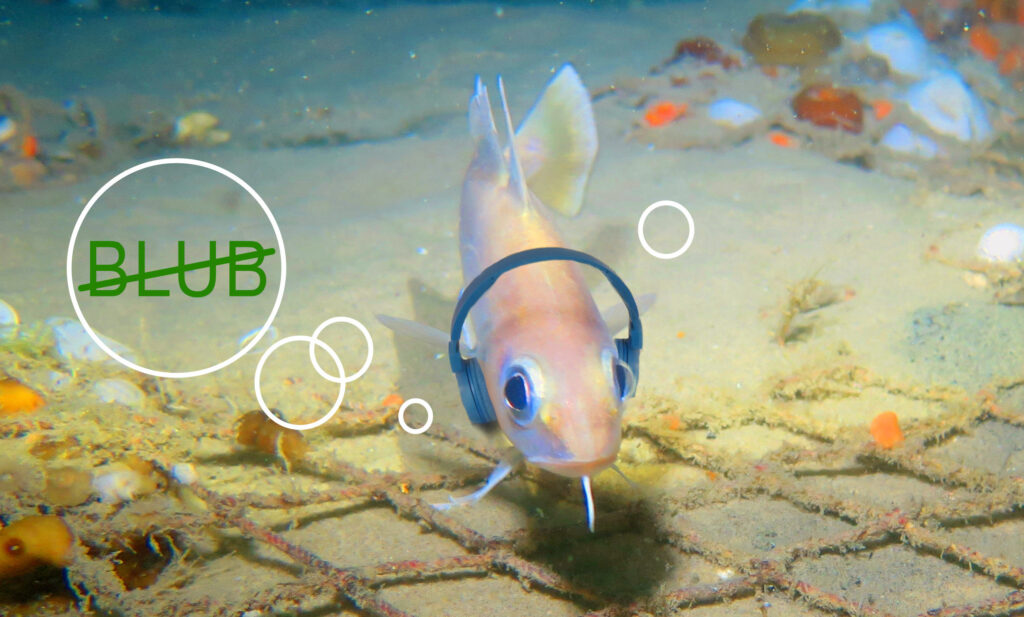
Voice of the Northsea (music composed from underwater sound recordings, storytelling from ecology chairholder and students)
Remco de Kluizenaar is a sound-artist / composer who previously made audiotours, theatrical audience-experiences and “jardins soniques” (sound gardens), in collaboration with scientists, presented at Oerol Festival, Dutch Designweek, Nederlands Openluchtmuseum, Kröller Müller, Tulpenroute Flevoland, etc. The tension in the relationship between nature and human technology has always been a subject that ignites his creativity and concern. His projects “Voice of the Northsea” (2023) and “Soil, LIVE” (2024) both contained music compositions, the first made entirely from hydrophone recordings of Sealife and human noise pollution, the second sheet music for amateur orchestras, about soil ecologies.
In an exchange with Marine ecology researchers, Remco develops songs for amateur choirs, in collaboration with a test choir. Sheet music will be freely available to all amateur choirs, i.e. 11% of all people in the Netherlands! Rehearsing to better sing the emotions of an eel, harmonising with animal sounds, vocal imitation of fish in a choirs’ community setting is fun, inspiring and engages many to connect with the marine Ecologies. Questions from the composer to the involved ecologists will challenge paradigms of measurability and managability, and invoke valuation of more mystic and intuitive truth-finding paradigms.
Transition Income submitted by Ad Vlems and Monique Vissers
explores how to fund transition research pioneers instead of research projects
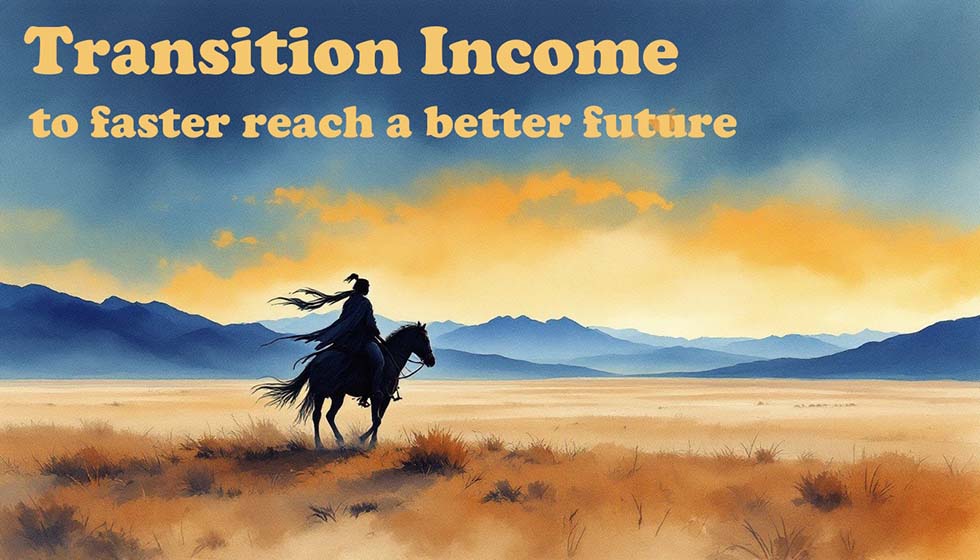
Ad Vlems is the visionary co-initiator of Ecodorp Boekel, dedicating an impressive 12 years of voluntary work, averaging 40 hours per week, to bring this sustainable community to life. His relentless commitment and the tested innovative solutions have earned Ecodorp Boekel three Dutch sustainable building awards and an award for SDG 11: Sustainable Cities and Communities. His passion for sustainability has made him a familiar face on television, with appearances in five national TV documentaries and one EU documentary broadcasted in 155 countries. Ad was honored with the prestigious Dutch Sustainable Ribbon in 2024.
Monique Vissers is the dynamic co-initiator of Ecodorp Boekel and a dedicated project leader at Fontys ICT. Her role connects her with various lectorates, fostering collaborations that drive the sustainable development goals and can research Transition Income. Monique’s unwavering support and her income from Fontys has enabled Ad to transform Ecodorp Boekel into a beacon of sustainable living. Together, they are not just partners in life but also in creating a positive impact on the world.
Any transition, any new innovative policy needs evidence-based, high-impact projects to prove a more sustainable and resilient society is in fact possible. These citizen-led, bottom-up, distributed and agile projects can drive transitions in construction, energy, mobility, community care, etc. Due to old-economy jobs to pay the rent, these transition pioneers’ expertise is underutilised at this crucial moment in time. Transition Income would free up those transition pioneers from old-economy work and unleash their expertise, positive energy and experience to accelerate the process and realise the innovative policy. Transition Income is not for the pioneer, it’s for the future.
The Port as a Pulse submitted by Lucy Gilliam and Tanner Tuttle
explores the reimagination of the role of Rotterdam port from ‘linear throughput hub’ to ‘regenerative climate resilient economic node’
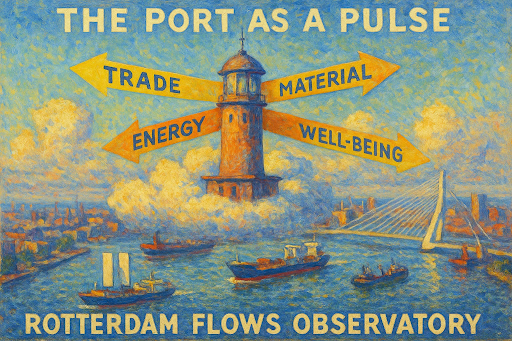
Dr Lucy Gilliam and Tanner Tuttle (MSc) co-direct One Planet Port to drive systemic change at the intersection of ports, climate, and society. Lucy is a natural scientist who translates cutting-edge research into bold policy and campaigns, specialising in shipping, ocean governance, and ecosystem-based management. She has shaped EU and IMO policies through years of international advocacy. Tanner is a social scientist and storyteller who draws on his Hollywood background to craft narratives that inspire action. As a certified Agile change agent, he leads complex, cross-sector projects, aligning strategy with implementation to catalyse transformative, regenerative transitions.
The Observatory of Trade, Material, Energy, and Justice Flows is a bold prototype to transform the Port of Rotterdam from a fossil-fueled throughput hub into a regenerative node within a sufficiency-based economy. By integrating satellite data, shipping records, IoT sensors, and citizen science, it creates a public-facing interface for systemic insight and policy imagination. Through scenario modeling, storytelling, and participatory design, the Observatory invites diverse actors to co-create transition pathways beyond growth. This project challenges institutional silos and dominant metrics, making the invisible visible and catalyzing a just, climate-resilient transformation rooted in planetary boundaries.
Designing the Otherwise submitted by Irene Luque Martin
explores spatial design to build new, just, bottom up, parameters and create legitimacy for other forms of knowledge
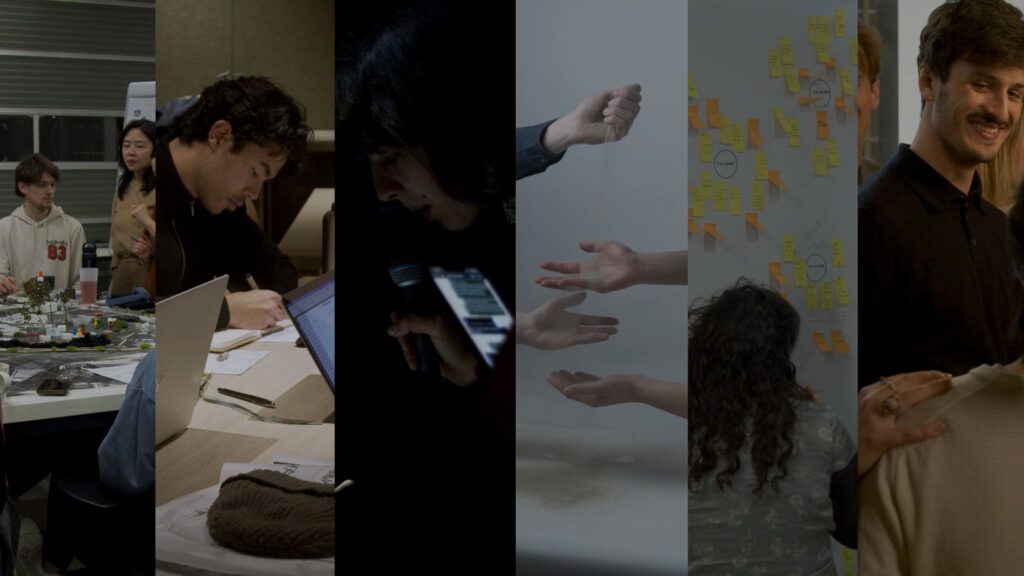
Screenshot from video on Justice by Design Winterschool from Academy of Architecture Amsterdam. Video made by Astrid van Nimwegen in March 2025. This event was an example of what designing otherwise event/set ups could lead for transforming educational and research environments.
Irene Luque Martin is a spatial designer, educator, and researcher committed to radical spatial imagination and the “otherwise” of spatial design. With over a decade of professional experience in spatial design across rapidly transitioning territories, she now focuses on research and education as catalysts for systemic change. At TU Delft, she is the initiator of a growing body of work on designing by feminist values, using intersectional, collaborative, and justice-driven approaches to reimagine how we teach, learn, and practice spatial design. Her work challenges dominant norms and positions the university as a site of transformative and imaginative action.
Designing the Otherwise begins from what seems impossible: to transform spatial design by dismantling its colonial, capitalist, and patriarchal roots and centering plural, justice-based practices that already exist but remain under-resourced and undervalued. This is not a project that fits within dominant funding frameworks or promises quick solutions; it questions the very criteria of excellence and innovation that exclude lived experience, refusal, and care. Instead, it asks: what if the center of spatial design were shared? What futures become possible if we sustain practices of the Otherwise—without neutralising them? An impossible project, perhaps—but precisely the one we need.
Adaptive Intelligence for Everyone submitted by Mattijn van Hoek and Ton Botterhuis
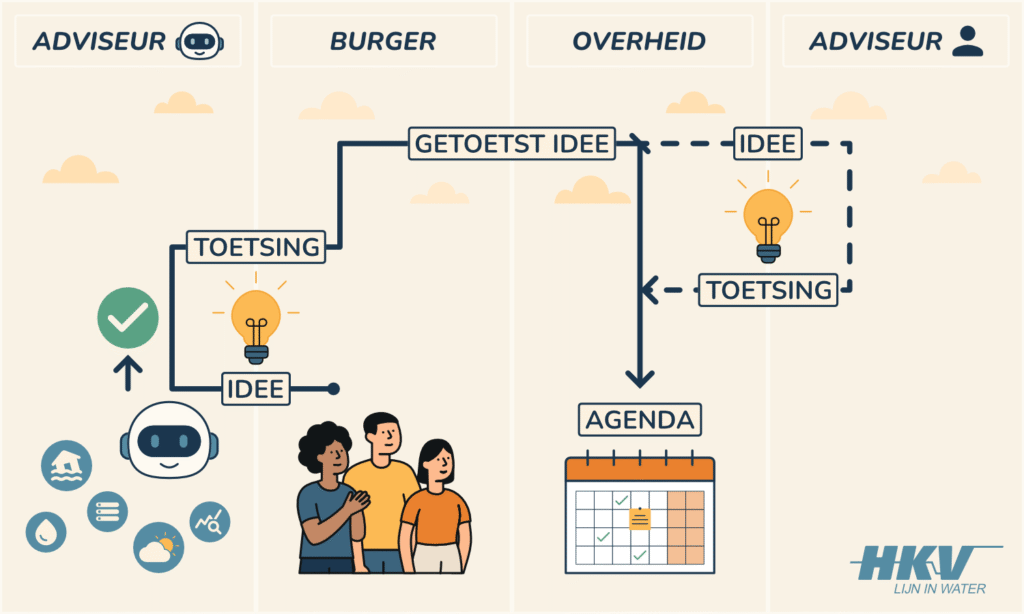
explores the opposite of citizen science by investigating how to make technical and policy expertise accessible to citizens via AI and how to change the role of scientists to validate plans
Mattijn van Hoek applies data and AI to tackle seemingly impossible questions about water and nature.
Ton Botterhuis has been developing straightforward solutions for flooding, drought and water safety in a changing climate since 1998.
They are democratising climate knowledge by linking AI Agent technology to open government data. Local communities often have strong climate ideas but lack access to expertise for validation. Their platform provides the same level of technical validation that is currently only available through exclusive consultancy firms. AI Agents combine data from Rijkswaterstaat, KNMI and the water authorities to assess local plans. In doing so, the project breaks the monopoly of closed expertise and gives grassroots initiatives a voice. The platform accelerates climate action from the ground up by removing knowledge barriers and enabling democratic participation.
Special thanks
A big thank you to everyone who shared their Impossible Project idea. We sincerely appreciate the effort and thought you put into the submission, and the contribution it made to the richness of this call. Listening to your voices has been truly inspiring and validated the need to rethink research funding so that candid, unpolished, and unexpected proposals can find space to emerge. We hope you will continue to develop your idea, and we remain committed to creating similar opportunities in the future.
Thank you also to our selection committee for your reflections and for ensuring a promising selection.
Next steps
We will soon launch a podcast series to share insights from this research and broaden the discussion on new ways of funding transformative climate research. The podcasts will allow us to dive into each of the selected ideas and their creator-teams and how their unfundable gem resonated with our research.
We warmly invite you to stay tuned for developments! Subscribe to KIN’s newsletter at the bottom of this page. If you have any questions, please don’t hesitate to email on opencall@foundationweare.org.

